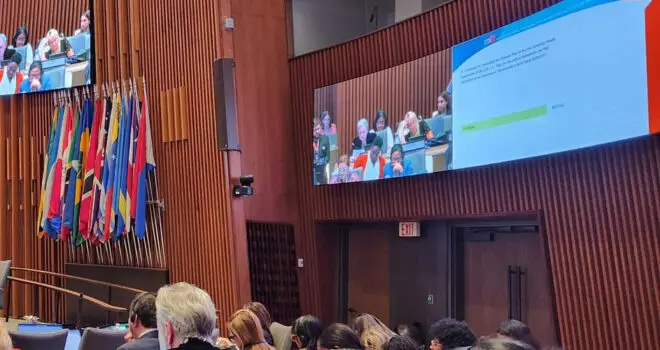This is a statement made at the 72nd Session of the WHO Regional Committee for the Western Pacific Region on non-communicable diseases.
The World Heart Federation welcomes the attention accorded to NCDs on this year’s agenda, and we pledge our support to WPRO member states to rise to the challenge and prioritise the prevention and control of NCDs in line with the adopted UN Political Declaration on NCDs.
As part of the push to achieve this goal, we would like to draw your attention to the issue of rheumatic heart disease, or RHD. If we are to step up our efforts to tackle the NCD burden, we cannot ignore this entirely preventable disease affecting 30 million people globally – mostly children and adolescents (1). RHD suffers from an almost unbelievable level of neglect in terms of attention and funding – despite having a prevalence similar to that of HIV. This is an outrage – and we are here today to speak for those 30 million patients whose voices so far have not been heard.
RHD usually begins in childhood with a sore throat which, when left untreated with simple antibiotics, can lead to irreversible heart valve damage, heart failure and often death. Those affected are too often bound by low-resource settings. They are our children and adolescents, with a female predominance. RHD often worsens during pregnancy – leading to complications and poor birth outcomes (2). The overall impact of RHD is devastating – in young lives and quality of life lost.
At the 2018 World Health Assembly, Member States unanimously adopted a global resolution on rheumatic heart disease. Many of you in this room have shown strong leadership in enacting national plans to tackle RHD since the resolution was passed last year. On behalf of all children, adolescents, and patients suffering from Rheumatic heart disease, we thank you for this. But we cannot content ourselves with the status quo. We encourage you all to step up your commitment on this issue, because without tackling RHD, we cannot hope to fulfill our commitments to tackle NCDs or ultimately reach universal health coverage.
Thank you.
(1) https://apps.who.int/gb/ebwha/pdf_files/WHA71/A71_25-en.pdf
(2) https://academic.oup.com/eurheartj/article/36/18/1059/2293282


